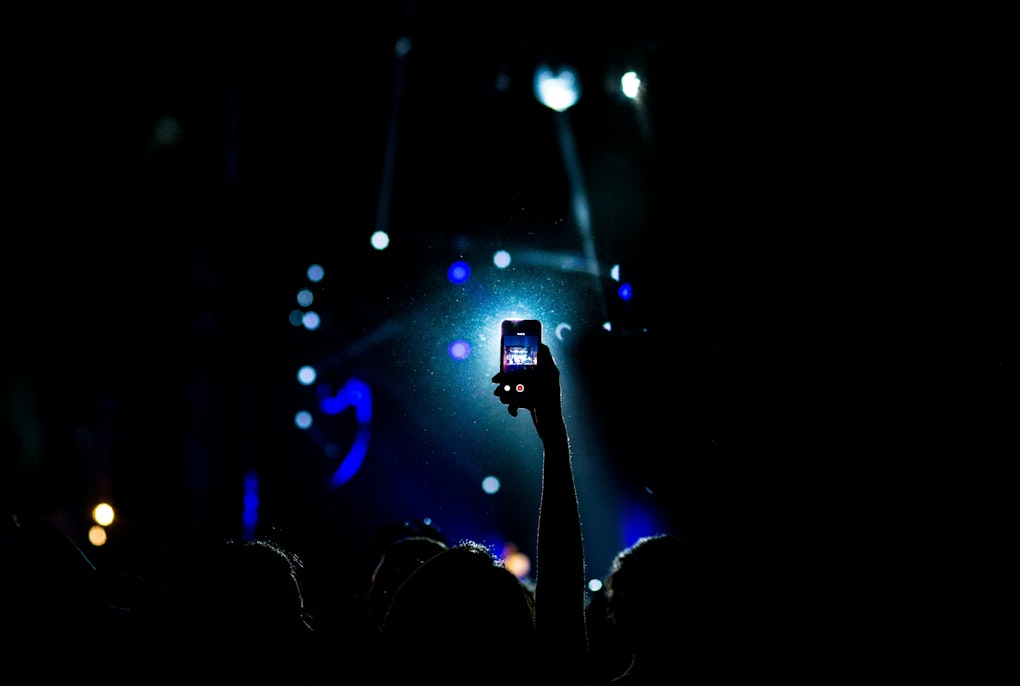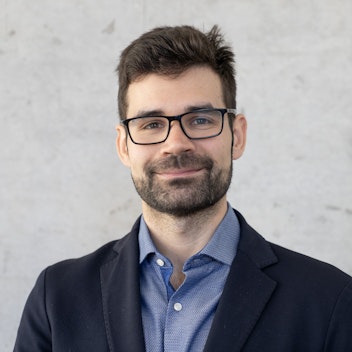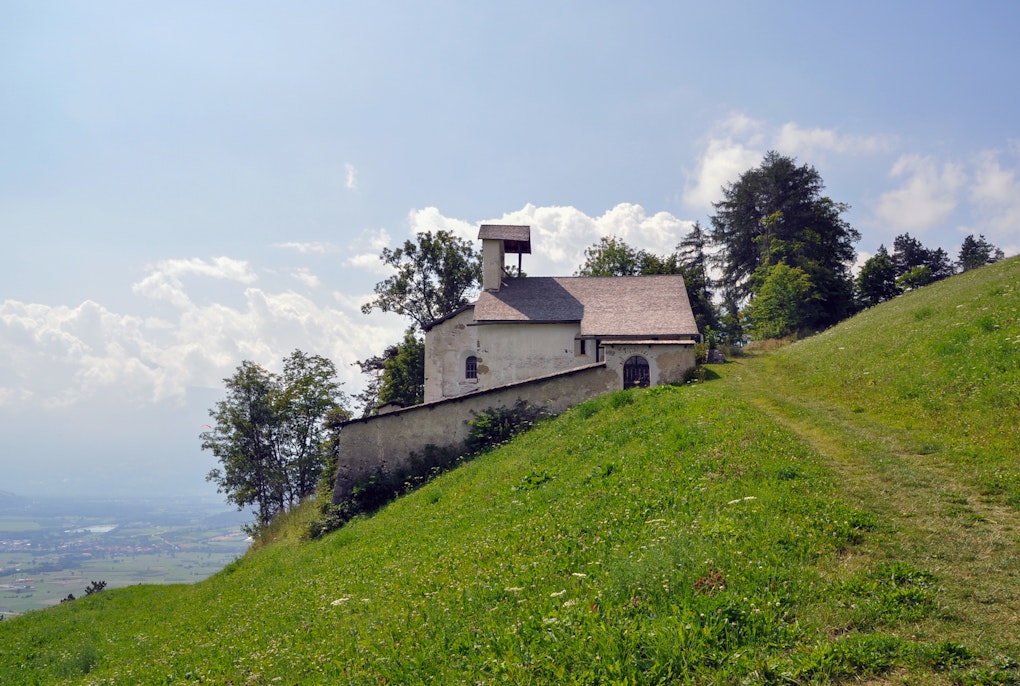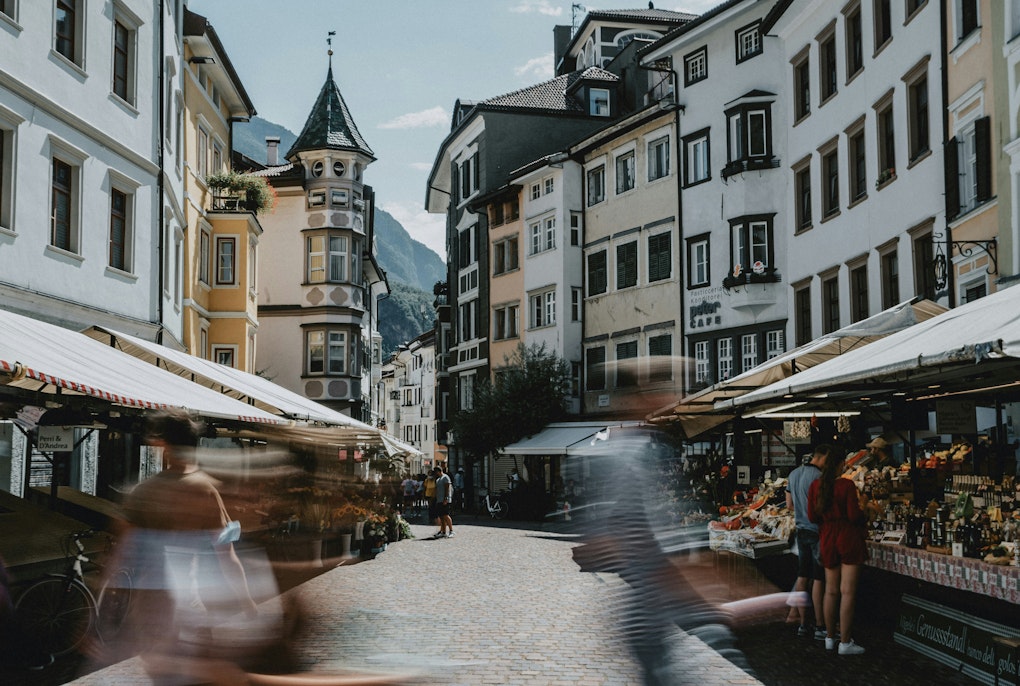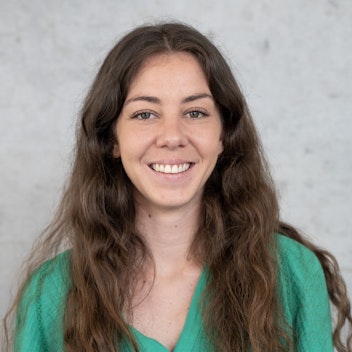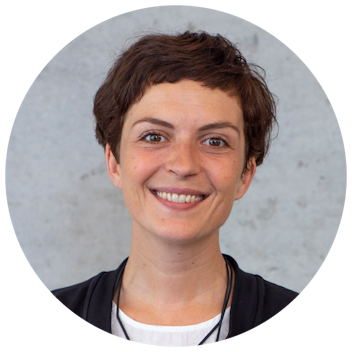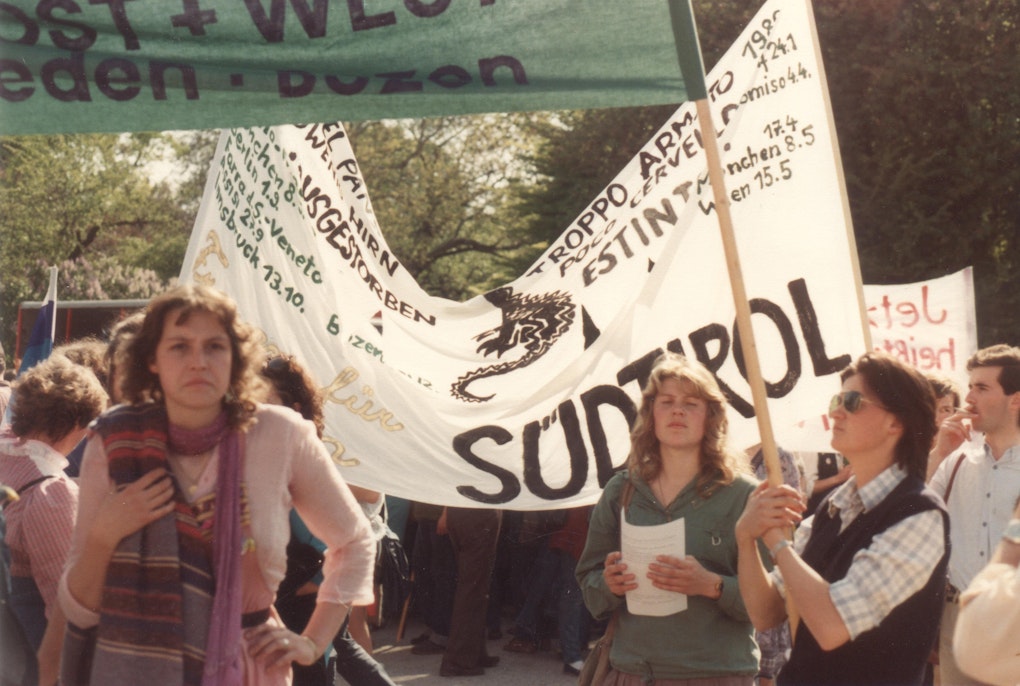magazine_ Interview
"It had to be built from scratch"
Conversations between disciplines: interview with librarian Antje Messerschmidt and event manager Pier Paolo Mariotti.
They both experienced beginnings: that of the first team that laid the foundations of the research centre and that of the new premises in Viale Druso, with its new spaces and services. Antje Messerschmidt and Pier Paolo Mariotti lead the library and the event management team respectively; here they retrace the steps, proud to have supported the research with their work and hopeful for the impacts of the research they will support in the future.
When did you first hear about Eurac Research?
Antje Messerschmidt: I can still envisage the old logo of the European Academy, the one with the bridge design. It was on an advertisement in a Trentino newspaper in 1992. They were looking for a librarian and I immediately thought it would be great as I could combine my two worlds, German and Italian. It took them a while to call me for an interview, a few months, but now I am the longest-serving employee! (laughs)
Pier Paolo Mariotti: I was in Milan, working for a magazine that dealt with conference tourism. They called me in to provide consultancy for the just opened congress center in the new premises on Viale Druso: it was 2001. Then, when the first manager chose not to return after maternity leave, I took over as director. Let's say that the collaboration evolved gradually and naturally.
Antje Messerschmidt, is it usual to hire library staff at the very beginning?
Messerschmidt: No, not at all. It was a suggestion from the linguist and jurist Reiner Arntz, who first put me in charge of acquiring a bibliographic database on legal language. It was a lot of work, but I was lucky. I only had empty shelves inherited from the previous tenants. Everything else, it had to be built from scratch: I went round and round in libraries and bookshops browsing through catalogues for titles that were not easy to find, and I also had to choose the most suitable software to organize them. Those used by smaller libraries were not enough, those of larger libraries, such as Tessmann, were too expensive. And then our computer scientists were already pushing for a solution that had to be compatible with Windows, which at that time was still a very uncommon operating system because everyone was using DOS. The start-up period was very busy, but wonderful: everyone was interested in everything.
Pier Paolo Mariotti, thanks to the congress centre being able to host important events, our research has had a new boost in development. Which scientific event impressed you the most?
Mariotti: There are actually five. First of all, I remember all the visits of the Dalai Lama with affection. If I then think of scientific events, I have to start in 2005, with the lecture by the American economist Jeremy Rifkin, who had been invited by Flavio Ruffini who at the time was at Eurac Research and is now working for the Province: following that particular conference, hydrogen research took off in South Tyrol. Two years later, the 27th symposium of the European Association for Remote Sensing (Earsel) was intertwined with the birth of our eponymous research institute. Then there was the German-speaking teachers' congress, which brought 2,767 people from 109 countries and five continents to Bolzano; and finally, I would like to mention the 10th Mountain Emergency Medicine Congress, in 2014, which was strongly supported by Hermann Brugger. Common elements to these events are the internationality and determination of an enlightened researcher whom we helped with our service to realize what was in their heads and thus to expand the network of collaborations in the scientific community.
Antje Messerschmidt, what relationship does the library have with the public?
Messerschmidt: For a long time, it was only a few scholars and PhD students that visited us. Then, with our move to the Viale Druso premises, something changed. The management were insistent that we opened the doors to the public, we needed to show that Eurac Research also provided a direct service to people. Thus, we acquired the Ökobibliothek, originally in Novacella and which later became the Eco-Library, which still supplies more than a hundred institutions - schools above all - with media packages and materials on environmental topics every year. In short, we are a unique library: both public and scientific.
“We used to be mainly book cataloguers, today we ensure smooth access to sources and information”.
Antje Messerschmidt
Both of you have been at Eurac Research for quite some time, what has been the biggest change in your work been since you started?
Messerschmidt: Apart from the move to the current location which had a huge impact with regard to public engagement, it would have to be the widespread use of the internet. On the one hand, there has been a strong increase in electronic resources: from paper books and journals we have moved to databases, e-journals and e-books. And, on the other, our work has changed: we used to be mainly book finders and cataloguers, today we ensure smooth access to sources and information, so much so that we speak of Library & Information Sciences. We take care of licences, for example, and often the end user does not even realize that it was the library that made a certain database available, because the mediation work takes place behind the scenes. In any case, the direct relationship with the public continues to be crucial, both at the loan counter and in direct consultations between users and library staff.
“The future will definitely involve more hybrid events because this formula makes attendance numbers explode”.
Pier Paolo Mariotti
Mariotti: I fully agree. As the pandemic has shown us, conferences can be moved online. Our team has quickly equipped itself on all the major platforms, and my staff are certifying themselves as Digital Event Strategists. Also, the future will definitely involve more hybrid events because this formula makes attendance numbers explode. For example, the European Society of Cardiology conference in Rome in 2019 attracted 25,000 participants; the 2020 event, online, was attended by 125,000. But the conference also has its intimate side, in the true sense of the word. It is in the face-to-face meeting between people that collaborations come to life and relationships are strengthened. And this cannot and must not be lost.
A wish for the future of your services?
Messerschmidt: That the library continues to remain a physical, living space.
Mariotti: That the success of the "Meeting the Nobel Laureates" event, which we organize with the Fondazione Cassa di Risparmio, continues, and that perhaps, in the future a researcher who has been through Eurac Research’s doors may even be nominated.
Antje Messerschmidt
Antje Messerschmidt, a librarian from Lower Saxony first moved to Veneto before transferring to Trentino, also worked in the University Library of Göttingen, one of the largest in Germany, before literally giving life to the Eurac Library. When she is not among the shelves, she takes photos of nature and landscapes, admires lakes and toils on cross-country skis.
Pier Paolo Mariotti
Pier Paolo Mariotti is a Certified Destination Management Executive and Digital Event Strategist, who, before joining Eurac Research founded the Convention Bureau of Turin and the magazine 'IT' about the conference industry in Italy. Before that he was a photojournalist and travelled extensively in Southeast Asia.


